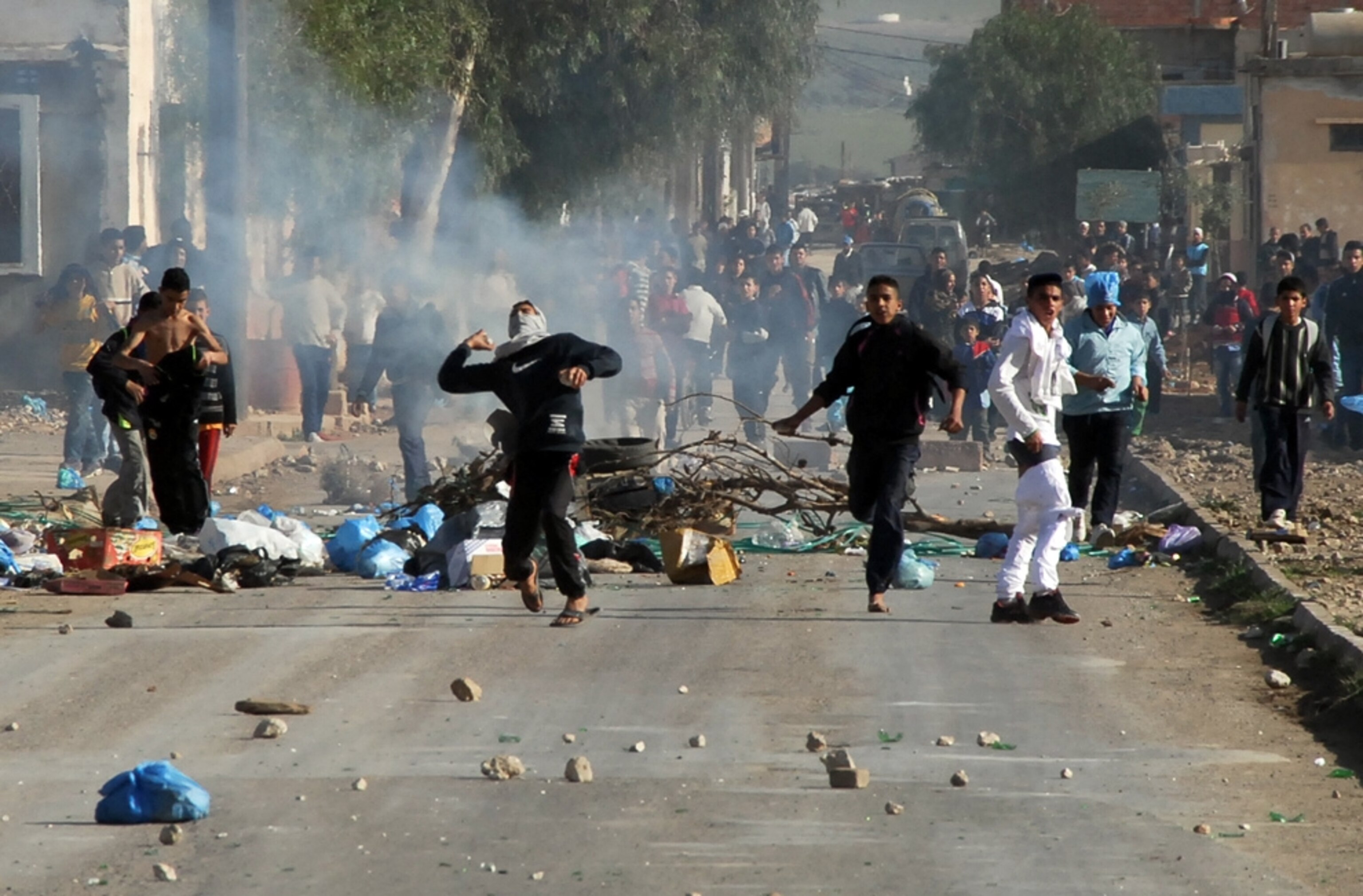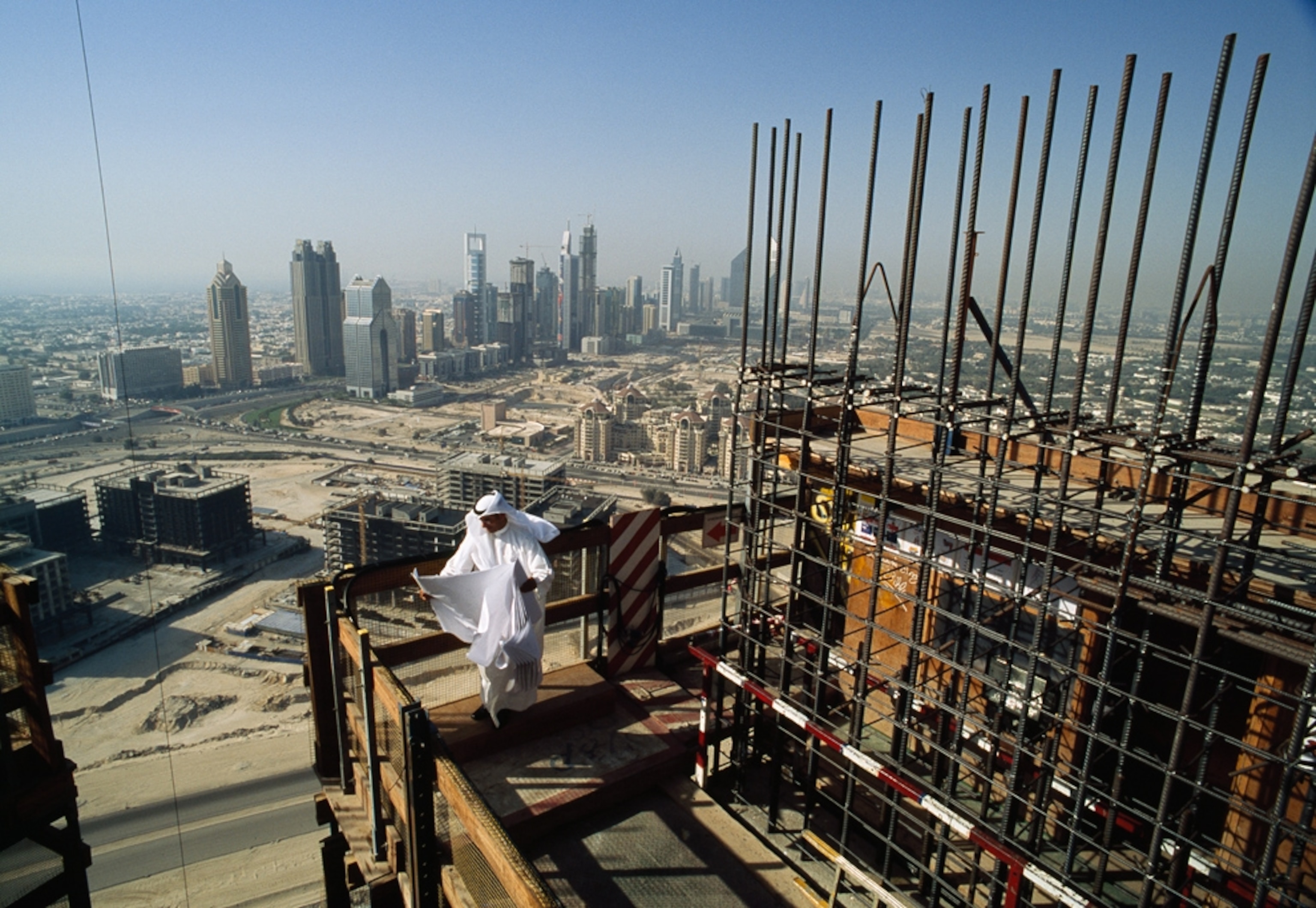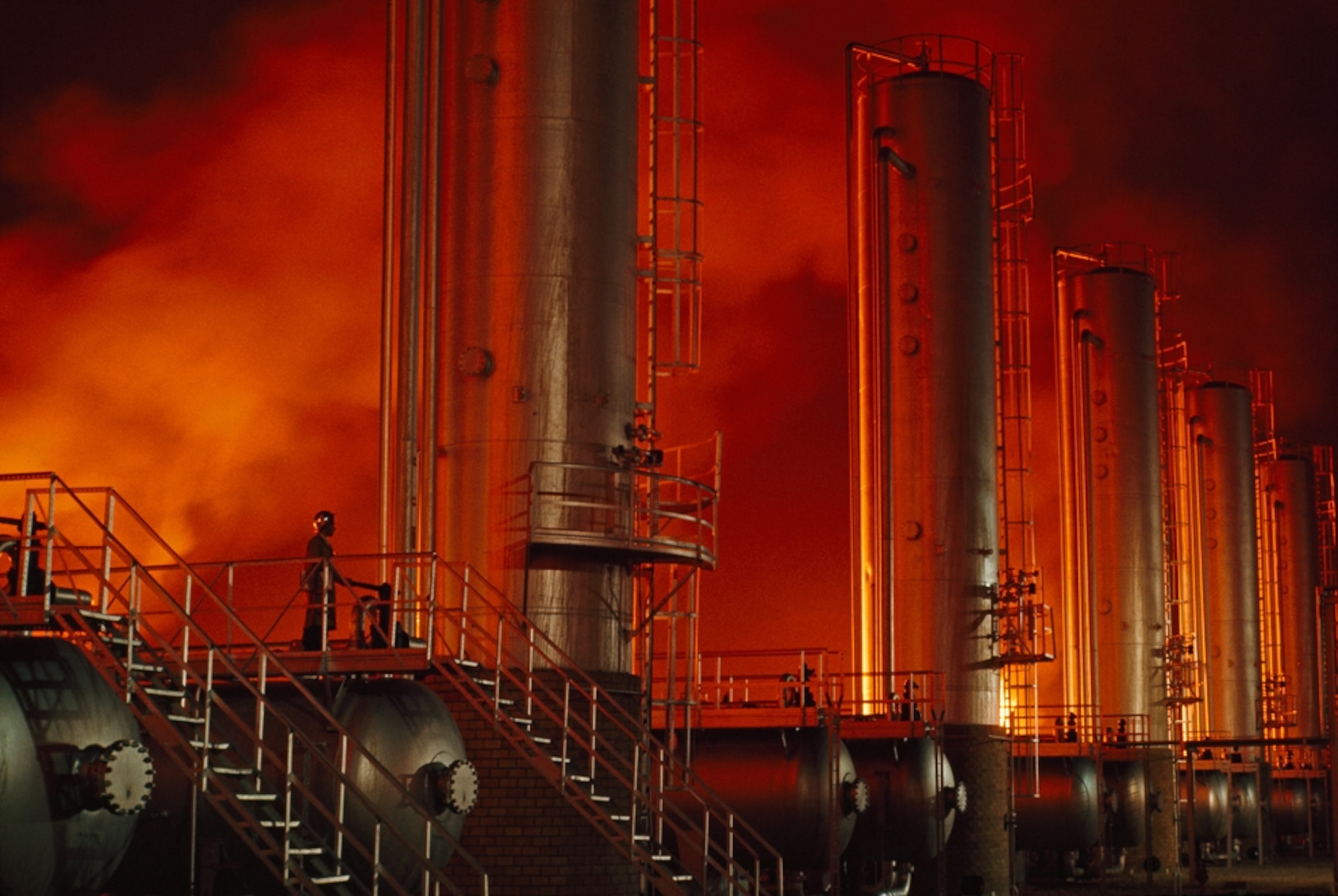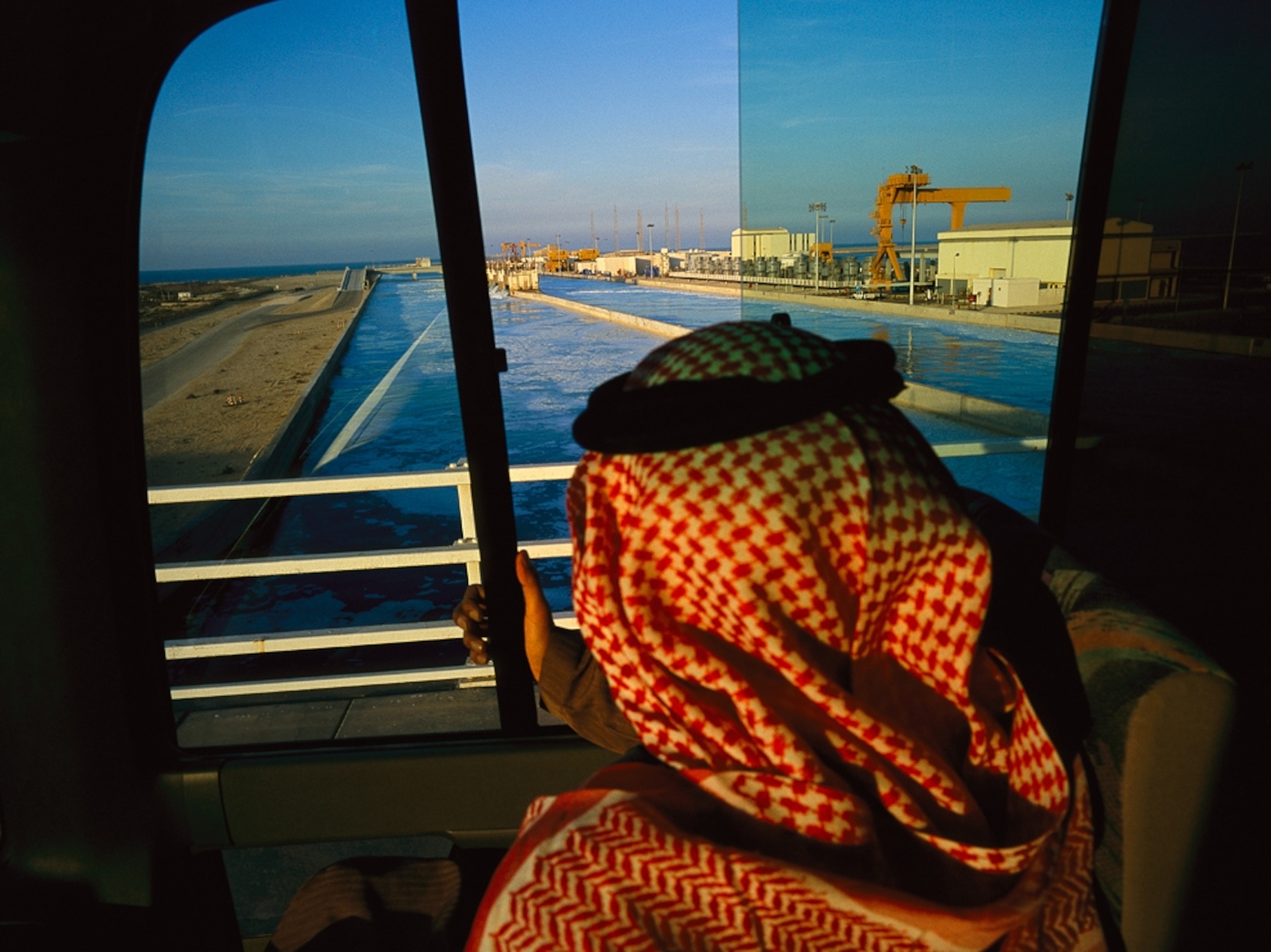







This story is part of a special series that explores energy issues. For more, visit The Great Energy Challenge.The shots that rang out in Brega (map), where this Libyan rebel patrolled a key refinery last week, truly were heard around the world—a world that relies on autocratic or troubled regimes of the Middle East and North Africa for one third of its oil.
With a protracted violent civil conflict looking likely in Libya, consumers in the United States have been hit with the second largest one-week gasoline price hike since government tracking began in 1990. (The only shock that was worse came after Hurricane Katrina.) Global crude prices now stand at their highest level since the 2008 recession.
(Related: “Oil Markets Churn Over Egypt’s Potential as a Gateway for Revolt”)
Former California governor Arnold Schwarzenegger voiced the frustration of many at an energy conference near Washington, D.C., last week: “Why should a dried-up country with a crazy dictator play havoc with our energy security?”
As much as 60 percent of Libya’s 1.6 million barrels per day of oil production has been shut down due to the strife, but the unrest there hasn’t caused a supply crunch; Libya provides only about 2 percent of global petroleum supply. Rather, the market is focused on Libya as the seventh-largest producer among eight key nations that provide 32 percent of the world’s current oil supply and, in fact, hold nearly 60 percent of all known petroleum reserves. Few of these states have as outsized an authoritarian figure as Colonel Muammar Qaddafi at the helm, but the market perceives their governments as at risk—whether due to monarchic rule, corruption, or economic stagnation.
“Nobody can be quite certain what exactly their vulnerabilities are,” says Bhushan Bahree, senior director of global oil for the consulting group IHS Cambridge Energy Research Associates (IHS CERA). “After all, we did not anticipate many of these things as recently as two months ago. The anxiety in the oil markets is precisely this—the unknown.”
(Related from National Geographic: Libya Guide)
Pictures—Oil States: Are They Stable? Why It Matters
Whether due to monarchic rule, corruption, or economic stagnation, market anxiety is high due to perceived peril in the eight nations of the Middle East and North Africa that supply one-third of the world's oil.